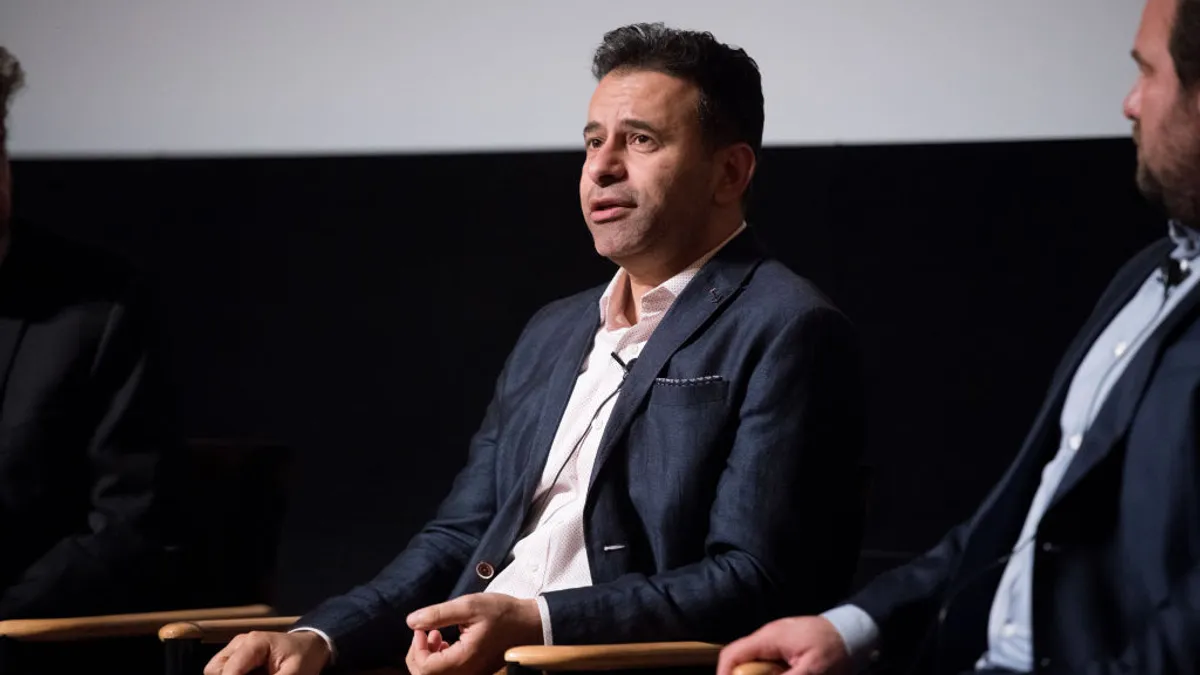Over the past few decades, advances in technology and creative talent from programmers, artists, and writers have spawned a  new generation of video games and those who play them, contributing to a $22.4 billion market. Many people assume video games are for entertainment only, but that assumption disregards the massive educational potential that scientific research is just beginning to understand. If industry leaders could wield that potential for empowering patients with information, imagine the possibilities: more effective recruitment and retention in clinical trials, improved medication adherence, and better health outcomes overall, to name a few.
new generation of video games and those who play them, contributing to a $22.4 billion market. Many people assume video games are for entertainment only, but that assumption disregards the massive educational potential that scientific research is just beginning to understand. If industry leaders could wield that potential for empowering patients with information, imagine the possibilities: more effective recruitment and retention in clinical trials, improved medication adherence, and better health outcomes overall, to name a few.
Many companies have recognized the value of gamification strategies in the healthcare space, but industry-wide support for video games themselves has been far more difficult to achieve. The barriers to buy-in are significant, including
Stigma associated with playing video games
Lack of proven outcomes
Issues of cost, patient privacy, and ethics
Engaging in dialogue about these barriers is worthwhile because it may uncover opportunities for new solutions to some of the industry’s most pressing problems — one, in particular. With 85% of clinical trials failing to retain enough patients, and the average dropout rate across clinical trials at 30%, the industry cannot continue absorbing such losses of time and money. But above all, in our common goal to improve the lives of patients, it’s well within our due diligence to leave no stone unturned.
Fighting the Stigma
According to an NPD Group study, 91% of children ages 2 to 17 play video games, but interest in them has broadened considerably. A 2015 report by the Entertainment Software Association (ESA) found the following:
Half of American adults play video games, and half of U.S. households own at least one game console
The average adult female gamer is 43 years old
The average adult male gamer is 35 years old
With an increasingly cinematic look and feel, video games have gone from media non grata to powerful tools for storytelling. Many popular video games have inspired social communities based around fully realized fictitious worlds that — much like literature — have deeply rooted lore and complex characters who are driven by a narrative of events.
For the healthcare industry, what’s the value of understanding the appeal of video games to the modern consumer? It’s safe to assume that a large portion of the patients we are trying to communicate with are gamers, and in the spirit of personalized medicine and so-called patient centricity, why wouldn’t we want to speak their language? After all, as the ESA found, the average gamer spends more than three hours per week playing video games — that’s time spent engaging with content. Could that content be healthcare-related? The answer is yes, and it’s already being done.
Case Study: The Paper Kingdom
The Paper Kingdom is a shining example of the right step taken in this direction. Supported with a grant by the National Heart, Lung, and Blood Institute, The Paper Kingdom is a computer game that helps educate children ages 8 to 14 about clinical trials, disguised in a storybook world of knights and dragons. The game begins as you, the player, are looking for your younger brother, who has run away inside a magical book to escape a clinical study. Inside the book, you enter the Paper Kingdom and find its leader, Dr. Chroma, who tells you that your brother has been taken by a dragon called Shade. Shade and his minions are scaring children away from clinical trials by spreading lies about them. To get your brother back, you need to defeat Shade and his minions by dispelling these lies and convincing children in each land to rejoin their clinical trial.
With child-friendly language, the game covers many clinical trial topics, such as confidentiality and stigma of participation. As one example, the character Piper helps illustrate the purpose of inclusion and exclusion criteria: Piper withdrew from his clinical study because his best friend wasn’t allowed to participate with him. Piper felt this was unfair and suspected that the doctors just didn’t like him. When you defeat Shade’s minions, you reveal truths. These truths help explain to Piper why his friend could not participate with him; for example, one truth reads: “There might be medical differences between you and your friend that make you the right person for the study, while your friend might be better for a different study." Recently, the game has received several awards for raising the bar of engaging education.
Editor’s Note: You can download and play The Paper Kingdom for free at http://www.childrenandclinicalstudies.org/thekidsfiles/paperkingdom.php.
What’s My ROI?
This is the “$32,000 Question" for getting industry buy-in: what proof is there that video games produce meaningful behavioral changes that translate to money well spent — changes such as persuading a patient to join a clinical trial, or take their medication as directed? To answer that question, it’s helpful to understand the qualities of video games that make them persuasive in this goal.
In an anthology of essays called First Person: New Media as Story, Performance, and Game, academics who study video games (called ludologists) use the term “interactive narratives" rather than “games." There is still much debate about the right blend of elements needed to make video games engaging and persuasive, but their potential impact can be summarized in three principle qualities:
Agency: the feeling of empowerment that comes from being able to take actions in a world whose effects relate to the player’s intention. Agency could be created through progressive mastery of skills, intermittent rewards, etc.
Immersion: the feeling of being present in another place and engaged in action therein. Agency is important to achieving immersion. Immersion could be created through compelling narrative, artistically designed worlds, social interaction, etc.
Transformation: the feeling or actual result of personal change. Agency and immersion together are important to achieving transformation.
In the example of The Paper Kingdom, agency and immersion are created through many avenues: allowing players to choose their avatar, customize their sword and shield, and choose the order of their missions. More importantly, players are presented with a clear goal of gameplay as they learn the mechanics needed to achieve it (i.e., by defeating enemies, upgrading weapons, and talking to characters).
But the quality of transformation is crucial in the question of ROI. To determine whether video games can be transformative, we should look to systematic literature reviews on the subject, where many researchers refer to video games for healthcare purposes as serious games or applied games. Many of these literature reviews highlight positive outcomes associated with video game – based interventions, but few studies are able to show outcomes with statistical significance, leading many researchers to inconclusive results.
For example, a 2015 systematic review published in BMC Pediatrics examined 12 studies evaluating the use of video games to educate parents of children with asthma, diabetes, and other chronic conditions. Some studies showed measureable improvements in areas like knowledge of disease and symptoms, perceived competence in disease management, and actual reduction of disease severity; however, many of these results did not achieve statistical significance. In reviews like this one, the research community seems eager to further the study of video games and strengthen its base of evidence. Despite inconclusive results, many reviews conclude by advocating for the potential of games. They also discuss the need to conduct higher quality studies, larger sample sizes, and better controls.
Unfortunately, the effectiveness of the The Paper Kingdom as an educational tool to recruit and retain pediatric patients hasn’t been validated in published studies. An unpublished paper by the game’s leaders reported the results of a study comparing knowledge gained on printed documents versus The Paper Kingdom in 250 children ages 8 to 14. The study found that knowledge increased in the group that played the video game, but the results about the overall effectiveness of the game were inconclusive.
However, the game has garnered many accolades and it’s clear that its intention is well-founded. In a recent Forte Research survey of the top reasons for dropouts in clinical trials, “misunderstood expectations" and “fear and anxiety" made the list. If not substantiated by data, then at least conceptually, The Paper Kingdom and games like it might be reasonably expected to reduce dropouts in clinical trials.
Privacy, Ethics, and Cost
There are many medical, legal, and regulatory issues to consider before using video games as a tool for healthcare education and outlet for pharma-to-patient communication. In articles about gamification techniques, healthcare leaders have flagged concerns about protecting patients’ privacy in digital or virtual spaces. The use of games also presents a challenge to review committees in which existing processes are ill-suited to assess interactive media in which every user’s interpretation of content could be very different. The price tag for developing custom video games is also a factor. An exploration of these issues is beyond the scope of this discussion, but it’s certainly one worth undertaking. Such conversations should extend beyond the leaders of pharma to include leaders in the game industry, the research community, national and global patient advocacy groups, and other healthcare stakeholders.
The Last Word
In a recent Ted Talk, cognitive researcher Daphne Bavelier discusses the positive effects of video games on the brain, including improvements in brain plasticity, learning, and attention, and then compares these effects on health to those of drinking wine.
“There are poor uses of wine, there are poor uses of video games," she says. But when consumed in moderation, both have certain “ingredients" that can benefit health. “We are working on understanding what those active ingredients are so that we can better leverage them for education or for rehabilitation of patients," she says. With further research and discussion, perhaps we will find that video games are, in fact, the missing ingredient to a recipe for success in patient education. (PV)
Artcraft Health is an award-winning, full-service health education agency specializing in the creation and development of compelling strategies and solutions that promote positive health outcomes through clear and engaging education.
For more information, visit artcrafthealth.com.



















